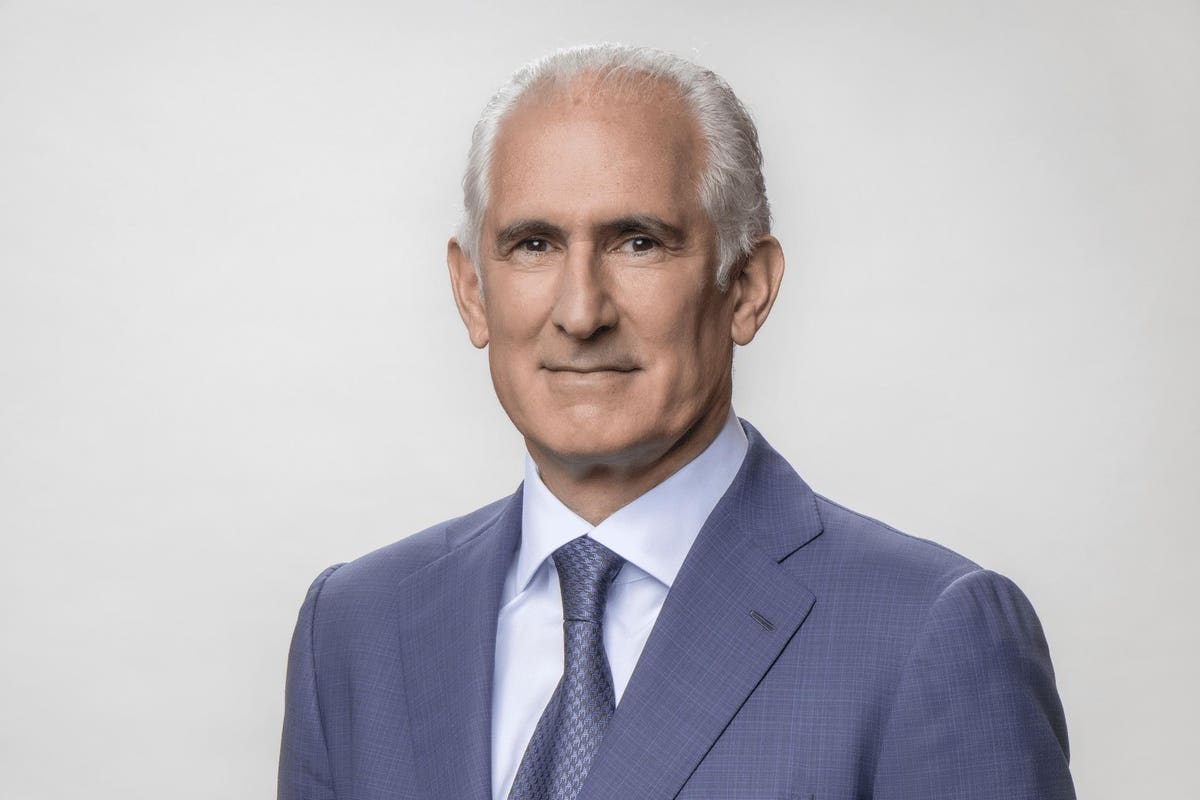Stephanie Ricci contributed to this story.
In an era of unprecedented global connectivity, the dynamics of leadership are evolving as borders blur, and workforces become increasingly diverse.
But how can leaders, both seasoned and emerging, effectively adapt in this ever-shifting interconnected landscape?
According to the CEO of Organon Kevin Ali, leaders can achieve success through strong cultural curiosity and gender diversity in our interconnected landscape.
Ali’s journey reflects resilience and adaptability. Born in Iraq, he moved to the United States at a young age, setting the stage for a career that would span continents and cultures.
After earning his undergraduate degree from the University of California, Berkeley, and an MBA from Santa Clara University, he embarked on a career in the pharmaceutical industry with Merck, steadily rising through the ranks and eventually spearheading the company’s international expansion. Witnessing the global challenges in women’s health, he helped lead the formation of Organon, a spin-off from Merck & Co, with a mission to transform and advance women’s healthcare.
During his 25 years spent abroad while working for Merck, Kevin Ali held various roles across the world. From serving as a product manager in the Middle East, to assuming the position of marketing director in Egypt, and managing director in both Turkey and Germany, his experiences have woven a diverse tapestry of insights into leadership.
“I have a very different approach in the way I manage in different cultures, and that’s one of the reasons I think I’m here today,” says Ali.
Leadership across cultures
One thing he’s learned is to adapt management styles to diverse cultures. He explains that effective management involves the capacity to perceive the environment and determine the most optimal approach.
For instance, in Germany, he embraced a more democratic, grassroots approach, whereas in Turkey, he leaned towards a somewhat hierarchical method, recognizing that it was better suited for accomplishing tasks in specific market contexts.
“If you want to succeed in a global, multinational type of company, then you have to have what I would call CQ, which is what I would consider cultural quotient and understand the nuances,” says Ali.
Leaders should immerse themselves in local cultures and take the time to learn the language to get a profound understanding of the negotiation methods and how business operate in different regions.
His advice for leaders going abroad? Embrace discomfort.
“There’s no rule book, there’s no recipe—there’s just experience,” says Ali. “In order to be a good to great leader, you need to constantly have one foot on that solid ground and one foot in the abyss.”
Among the most significant errors made by American or US-based leaders abroad is selecting the wrong talent, believes Ali. This happens when they choose individuals solely based on their presumed proficiency in English or their alignment with American cultural business practices. And yet, this approach may not always yield the most effective results when managing a local subsidiary or regional framework.
Conducting business in Canada, the U.S., the UK, and perhaps even France often revolves around financial transactions, while in many other parts of the world, businesspeople may prioritize building personal relationships, often exemplified by inviting clients to dinner or even gifting flowers to their partners.
American culture emphasizes on speed and efficiency. Ali reflects on how this focus on rapid progress is exemplified by some young professional’s impatience with climbing the ladder—a trait often associated with Gen Z.
Trust extends beyond transactional agreements; it encompasses the ongoing cultivation of relationships.
Gender-related differences
Clearly, age and culture can have a substantial influence on leadership. However, it’s worth noting that various factors, including as gender, may also have an impact.
Organon boasts a well-balanced workforce, with an even distribution of 50% men and 50% women throughout the entire company, according to Ali, who shares that this gender parity extends to the senior management team. The company’s board of directors stands out with a 70% representation of women and 30% of men.
“The women on my senior leadership team, especially my head of commercial, have probably the greatest followership I’ve ever seen in industry,” says Ali, who attributes this success to an approach that relies less on hierarchical management methods. “From what I’ve been able to witness, that’s only one aspect that I think that makes a difference,” he says.
In his view, some female leaders often demonstrate a strong commitment and unwavering focus on long-term objectives, while some male counterparts may tend to adapt their strategies based on current circumstances.
“The women managers I have seen are more focused on that end goal and more patient in order to reach it,” he says. “That’s something we can learn.”
Nurturing work culture in hybrid work
The shift to remote work post-pandemic offers improved work-life balance but may pose long-term competitive challenges, according to Kevin Ali. In-person interaction and maintaining company networks are crucial for a thriving work culture.
“We’ve realized that we can be just as productive [working from home], but at the same time, we lose something when you’re not spending time together as individuals, especially as a culture,” he says.
When one spends excessive time away from interacting with colleagues in a company, they risk becoming akin to a “digital Bedouin,” says Ali, making it challenging to instill the essential connections that hold significant importance within an organization.
He warns that considering that the way things typically operate often relies on the networks individuals build, especially those that extend cross-functionally, and these links can suffer greatly when remote work is prioritized.
“I believe that the hybrid kind of approach is the best way because otherwise you lose something,” he says.
Ali’s journey offers valuable insights for both established and emerging leaders. Embracing adaptability, a heightened curiosity for cultural awareness, and gender diversity remain key for successful leadership in our interconnected landscape.
Read the full article here





